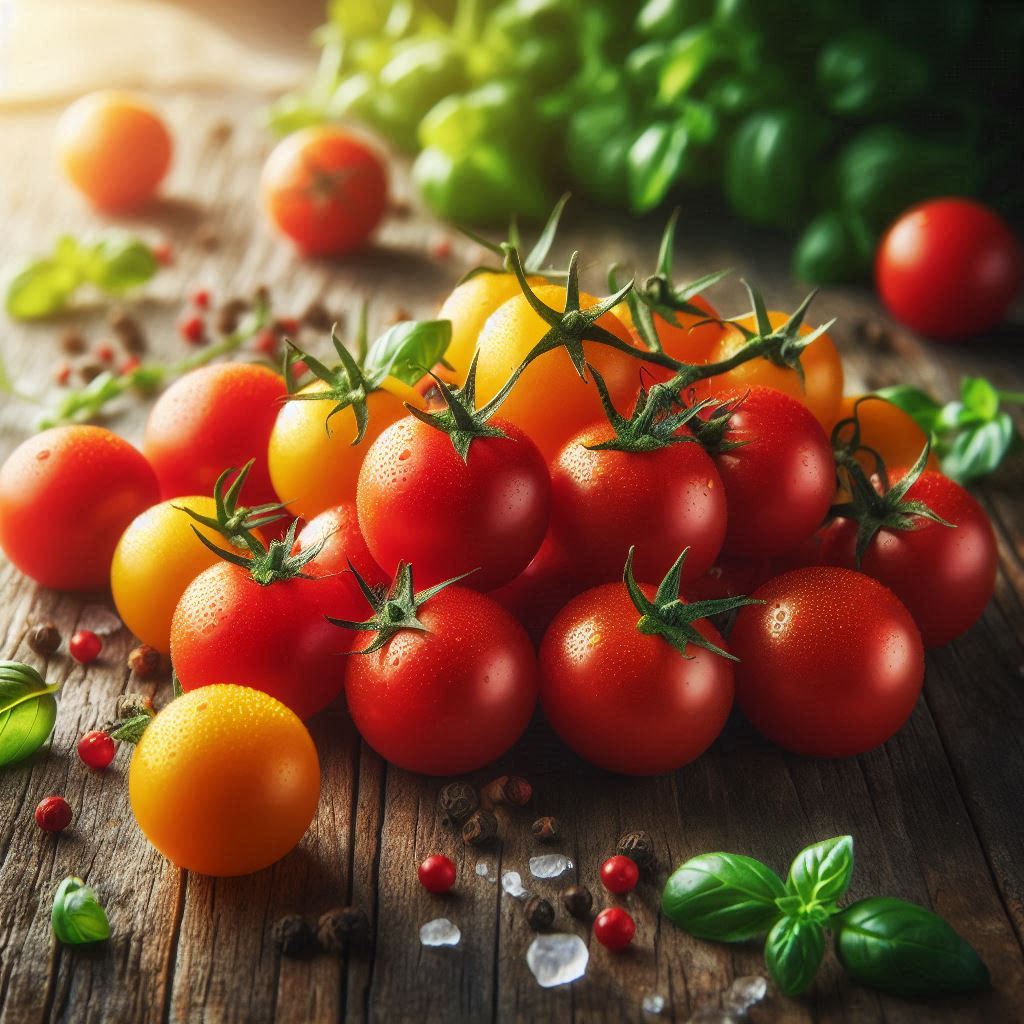Cherry tomatoes—those vibrant, bite-sized bursts of sweetness—are a staple in kitchens around the world. Whether tossed into a salad, roasted for a pasta sauce, soups, or used as a garnish, their flavor and color elevate any dish.
But when it comes to certain recipes, especially those that call for a silky texture or refined presentation, peeling tomatoes becomes more than just a culinary flourish—it’s a necessity.
In this article, we’ll explore the process of peeling cherry tomatoes in detail, including why it matters, when to do it, and how to master the technique with ease.
Whether you’re a seasoned home cook or a curious beginner, this guide will help you turn a humble tomato into a polished ingredient worthy of your most elegant creations.
Why Peel Cherry Tomatoes?
Table of Contents

Before diving into the how, let’s talk about the why. Cherry tomatoes have thin skins, but those skins can still affect texture and taste in certain dishes. Here’s when peeling makes a difference:
- For sauces and purees – Skins can create a gritty or chewy texture while cooked down.
- In refined salads or appetizers – Peeled tomatoes offer a smoother mouthfeel and more elegant appearance.
- For pickling or marinating – Removing the skin allows flavors to penetrate more deeply.
- In baby food or special diets – Skins may be harder to digest for some individuals.
- Peeling cherry tomatoes is a small step that can have a big impact on the final dish—especially when presentation and texture matter.
️Tools You’ll Need To Peel Cherry Tomatoes

Peeling cherry tomatoes doesn’t require fancy equipment, but having the right tools makes the process smoother:
• A sharp paring knife or tomato corer
• A slotted spoon
• A medium saucepan
• A large bowl filled with ice water
• A clean kitchen towel or paper towels
• Optional: fine mesh strainer (if making sauce afterward)
Step-by-Step Process to Peel Cherry Tomatoes

Here’s the tried-and-true blanching method, which uses a quick dip in boiling water followed by an ice bath to loosen the skins.
Wash and Prep the Tomatoes
Start by rinsing your cherry tomatoes thoroughly under cool running water. Remove any stems or leaves, and discard any bruised or overly soft tomatoes.
Score the Skins
Using a sharp paring knife, gently score a small “X” on the bottom of each tomato. This helps the skin loosen during blanching. Be careful not to cut too deep—just enough to break the surface.
Blanch the Tomatoes
Bring a medium saucepan of water to a rolling boil to blanch them. Carefully add the scored cherry tomatoes using a slotted spoon. Let them boil for 15 to 30 seconds—just until the skins start to wrinkle or curl at the edges.
Transfer to Ice Bath
Immediately remove the tomatoes from the boiling water and plunge them into a bowl of ice water. This stops the cooking process and helps the skins separate cleanly.
Let them sit in the ice bath for about 1 to 2 minutes.
Peel the Skins
Once cooled, take each tomato and gently pinch or rub near the scored “X.” The skin should slip off easily. If needed, use the paring knife to help lift stubborn bits.
Place the peeled tomatoes on a clean towel to dry.
Clean-Up and Storage Tips For The Tomatoes

• Store peeled tomatoes in an airtight container in the refrigerator for up to 3 days.
• For longer storage, freeze peeled tomatoes on a baking sheet, then transfer to freezer bags.
• If making sauce or puree, use a fine mesh strainer to remove any remaining seeds or skin fragments.
Recipes That Shine with Peeled Cherry Tomatoes
Now that you’ve mastered the technique, here are a few dishes where peeled cherry tomatoes truly shine:Peeling tomatoes isn’t just a modern culinary trend—it has roots in traditional cooking across cultures:
• In Italian cuisine, peeled tomatoes are essential for sauces like sugo and passata.
• French chefs often peel tomatoes for refined dishes like tomato concassé.
• In Japanese cooking, peeled cherry tomatoes are sometimes served chilled as a delicate side dish or garnish.
This technique reflects a broader culinary philosophy: attention to detail transforms simple ingredients into something extraordinary.
️Visual Styling Tips for Peeled Tomatoes

Since you’re visually oriented, here are a few plating and styling ideas:
• Glossy finish – Toss peeled tomatoes in olive oil and sea salt for a jewel-like sheen.
• Color contrast -Pair red cherry tomatoes with yellow or orange varieties for visual pop.
• Minimalist plating -Serve peeled tomatoes on a white plate with microgreens or edible flowers.
• Rustic charm – Layer peeled tomatoes on toasted bread with herbs and ricotta.
Even with a simple process, a few hiccups can happen. Here’s how to troubleshoot:
• Skins won’t peel easily? Try blanching for 5–10 seconds longer.
• Tomatoes turning mushy? Reduce blanching time and use firmer tomatoes.
• Scoring too deep? Practice with a few tomatoes to get the feel—gentle pressure is key.
• Want to skip blanching? Try roasting cherry tomatoes at 400°F for 10–15 minutes, then peel once cooled.
Final Thoughts
Peeling cherry tomatoes may seem like a small step, but it’s one that reflects care, precision, and a love for the craft of cooking.
Whether you’re preparing a rustic sauce or plating a refined appetizer, this technique helps elevate your dish from good to unforgettable.
So, next time you reach for a handful of cherry tomatoes, consider giving them the royal treatment. Your taste buds—and your guests—will thank you.
Leave a Reply